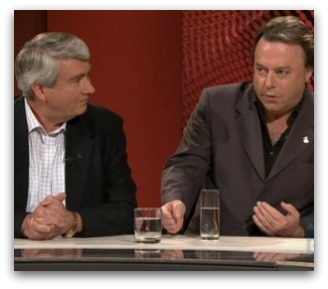Keywords: Religious Discrimination Bill
-

RELIGION
- Frank Brennan
- 14 October 2011
Mary visited Rome as a young religious woman when she was being persecuted by local bishops for being too independent. She got a good hearing from the Pope and great assistance from Fr Anderledy who became the Superior General of the Jesuits. If only Bishop Bill Morris could have received the same sympathetic hearing.
READ MORE
-

AUSTRALIA
- Andrew Chalk
- 11 October 2011
5 Comments
Many Australians have reached a point of believing that the difficulties afflicting Aboriginal communities demand the heavy handed, and often humiliating, approach. But the Philppine grassroots Gawad Kalinga model, based on 'the giving of care', offers a realistic alternative.
READ MORE 
-

RELIGION
- Frank Brennan
- 13 September 2011
5 Comments
The Church of the 21st century should be the exemplar of due process, natural justice and transparency. While there can be little useful critique of the final decision of Pope Benedict to force the early retirement of Bishop Bill Morris, there is plenty of scope to review the processes leading up to it.
READ MORE
-

RELIGION
- Frank Brennan
- 02 August 2011
1 Comment
I am bemused that whenever I agitate questions of Aboriginal and refugee rights I am well received by liberals, who then question my clerical entitlement to speak when I buy into debates on issues like euthanasia and embryonic stem cell research. On same sex marriage, I am attacked from both sides.
READ MORE
-

RELIGION
- Frank Brennan
- 18 July 2011
Speech given by Fr Frank Brennan SJ at the 'Law and Religion: Legal Regulation of Religious Groups, Organisations and Communities' Conference Dinner in Melbourne on 15 July 2011.
READ MORE
-

RELIGION
- Frank Brennan
- 18 July 2011
5 Comments
When I appeared on Q&A with Christopher Hitchens, a young man asked whether we can 'ever hope to live in a truly secular society' while the religious continue to 'affect political discourse and decision making' on euthanasia, same-sex unions and abortion. Hitchens was simpaticao. I was dumbstruck.
READ MORE
-

AUSTRALIA
- John Warhurst
- 11 November 2010
12 Comments
Nine prime ministers have been observant Christians. Two have been conventional Christians. Ten have been nominal Christians. Five have been articulate atheists or agnostics. One was a nominal atheist or agnostic.
READ MORE
-

RELIGION
- Frank Brennan
- 01 November 2010
3 Comments
There is an emerging Aboriginal middle class. The contested questions in those communities relate to the expensive delivery of services including health, housing and education. The contested issue in the urban community is over self-identification as Aboriginal by persons of mixed descent.
READ MORE
-

RELIGION
- Frank Brennan
- 07 July 2010
Fr Frank Brennan's address to the Melbourne College of Divinity
Centenary Conference, Trinity College, University of Melbourne, 6 July
2010.
READ MORE
-

RELIGION
- Frank Brennan
- 09 February 2010
'Tonight I want to reflect in light of the National Human Rights
Consultation how we as Church can do better in promoting justice for
all in our land. Full text from Frank Brennan's 2010 McCosker Oration, 'The Church as Advocate in the Public Square: Lessons from the National Human Rights Consultation'.
READ MORE
-

RELIGION
- Frank Brennan
- 28 January 2010
1 Comment
The full text of Frank Brennan's January 2010 address to the Australian Association of Catholic Bioethicists, 'Toothless, Trojan or True to Trinitarian Anthropology? Reflecting on the 2009 National Human Rights Consultation'.
READ MORE
-

RELIGION
- Frank Brennan
- 14 October 2009
1 Comment
Even if all our recommendations were implemented tomorrow, there would still be vulnerable
Australians missing out on essential economic and
social rights. Responsibility for meeting these needs cannot rest
solely with government. We need to take
responsibility for each other.
READ MORE